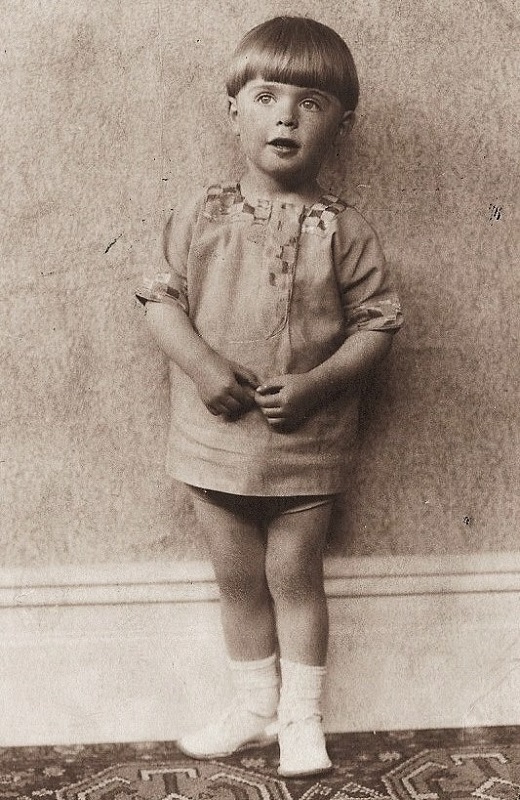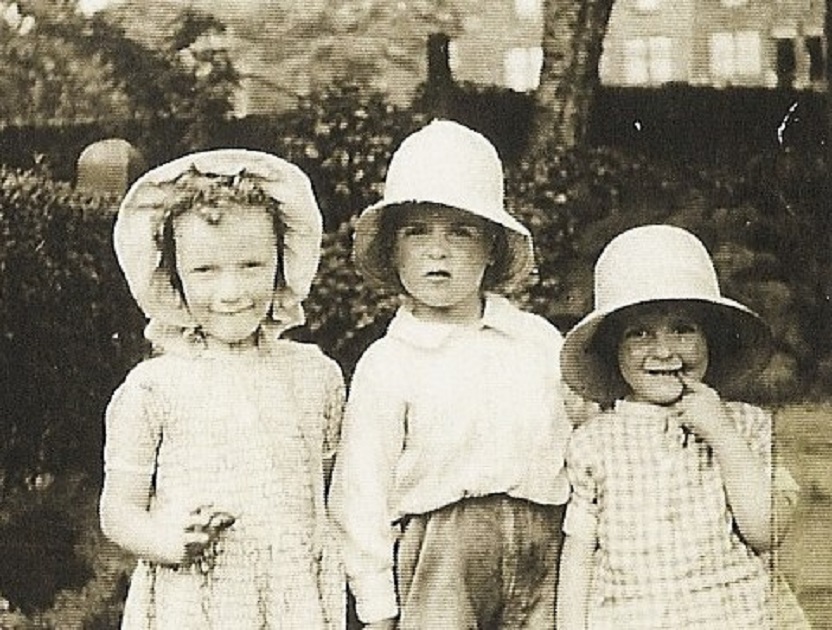| Title | My Childhood Memories |
| Date | 1926 – 1939 |
| Location | Yeadon |
| Written By | John Denison |
| Comment | All History Matters by Carlo Harrison. See below… |
I am starting today to share with you the childhood memories of John Denison.
John has been a frequent contributor to this page and to our Web-Site.
John is 86 years old and lives in Salisbury but was… a Yeadon resident all through his childhood, and, as a reminder he was called Malcolm up to the point of joining the Army where he used his preferred first name of John.
For John, its just a trip down memory lane put onto paper, for us, its a first hand account of times gone by.
My Childhood Memories – 1926 – 1939
“Before one goes on to describe the events of childhood I think I should establish under what circumstances these took place.
Yeadon was an industrial town where most of its adults, both male and female, were employed in the woollen industry.
I can count seven mills which provided work, but not always.
After the General Strike of 1926 and through the 1930’s up to the beginning of the war, there was a reduction in the demand for goods.
Thus employees would be “laid off” and go on the dole but even this was not always guaranteed when the infamous ‘Oxo’ system came into being.
I understand that there was collusion between the government and the employers so that workers would be employed one day and ‘out’ the next which nullified dole payments.
I might be simplifying this or perhaps incorrect but this was how I perceived it.
Anyway there was a distinct lack of money in the town and so we children were a pretty raggety bunch wearing our clothes until they had many holes and literally ‘fell off our backs’.
Boys wore short trousers right up until leaving school, footwear was usually boots, they tended to last longer than shoes.
One type of boot was easily recognized being those which were given to the poorer families and thus distinguishing them.
This outfit usually completed by a cap, that of those who attended Guiseley Secondary School had a design badge which earned, from us in the Elementary, the title of ‘Second-hand bulldogs’.
In families who could afford it both boys and their fathers would have a Sunday Suit which was reserved for just that day and special occasions.
I suppose weekday clothes were not all that important in a town where all the buildings were black being coated with soot which belched continuously from the many mill chimneys.
The dwelling houses did not help in that they were all burning coal in their fireplaces.
Then there were the sounds.
All mills had sirens which would be heard calling people to work, for lunch time and denoting when it was time to to go home.
We knew all the different noises made and they helped kids to know what time it was, only men possessed watches on a chain and kept in the waistcoat pocket.
In addition to this the Fire Station would also sound alarms which I suppose was to call in the men who did not ‘live’ at the station
Weekends would be mercifully quiet without the sounds of industry and the sirens.
What we would hear was the sound of aeroplanes flying around and performing aerobatics, these were piloted by members of the Flying Club and would more often than not be Tiger Moth and Puss Moth planes.
Yeadon aerodrome was quite small but the RAF were there from 1936 with 609 (West Riding) Axillary Squadron.
They had Hawker Hart and later Hindle light bombers, later the Sqdn would distinguish themselves in fighter aircraft during the Battle of Britain.
There would also be shows by the flyers known as ‘Barnstomers’ who would perform various daring stunts.
Flights could also be had, it cost either half-a-crown or five shillings, way above the working mans pocket.
I have jumped ahead to 1936 but as I have been going on about flying I think this is the appropriate place for a departure from the more general theme.
In the middle of that year I observed what was to be part of a historic event when I saw the enormous German airship ‘Hindenburg’ flying eastwards just beyond The Billing.
It was already famous for making a round the world flight seven years earlier but went into history when, in 1937 it was destroyed by fire in New Jersey, USA.
I know return to the general theme.
My Dad worked at Naylor Jennings Green Lane mill as did his Father and Uncle.
I think he was a valued employee since, when the others were ‘out’ he would be used as a drivers mate traveling around the country on deliveries.
This was possibly because he had once had a motor-cycle and held a full driving license, there was no test and he later drove vehicles just by picking up how to do it.
The only good point about this period was that children saw more of their Fathers, when working my Dad would leave home at 6 in the morning and arrive back at six at night plus they had to go in Saturday mornings to clean the machinery.
Later, for many years, he worked ‘nights’ which he preferred.
It was hard work particularly moving around the huge rolls of material on trolleys with a wooden concave upper surface designed so that the rolls would not be damaged or fall off.
Moving them was purely by man-power and they were very heavy.
The floor was always wet and the noise made by the machines was terrific which was possibly why, in his late years, he was almost stone-deaf
When my Dad was working he would cycle home for lunch leaving his bike propped up against a fence at the bottom of the Stony Road… (now called Rufford Ridge) for collection safe in the knowledge that it would still be there when he went back for it.
This was also the case with us and our bikes, they would be left anywhere, twas a much more ‘honest’ time.
It is quite true that no one locked their doors during the day.
Then there were the visitors.
Early morning would see Willie Fletcher of Carlton arriving with his large can of milk and ladle closely followed by the paperboy who would bring a copy of the Daily Herald, no delivery charge.
The Sunday News of the World had to be collected.
Once a week ‘the man from the Pru’ would call in, have a cup of tea and a chat, then write up in the passbook the penny or tuppence collected for insurance.
Mam must have been privileged as he surely could not have done this at every port of call.
Weekly visitors were the dustbin-men with their horse and cart, the bins were galvanized metal and large made for heavy work.
Another unmotorised caller was Mr. Leadbetter who came with his high cart loaded with all manner of things the housewife might need, at the back was a large tank which contained paraffin for use in heaters, this would be decanted into cans previously used for petrol.
Coal for use in the fireplaces was delivered in sacks where, after removal of a metal grate in the street, it would be shot down a chute into the back cellar.
We would follow all these vehicles in the hope that the horsed would ‘perform’ so that the result could be presented to a parent for the garden in the hope that, a ha’penny would be earned.
A motorised visitor was Frank Grannelli who offered for sale the most wonderful ice-cream.
I cannot leave the subject of visitors without referring to our next door neighbour, May Riley (later Fell), a ginger-haired lady who lived there with her son Sam.
She would regularly drop in for a chat, but though this did not always call for a cup of tea, she was quite a chatterbox and could go on for quite a while as she related all the local news.
She had lived her whole life in Yeadon and seemed to know everyone and their business.
Mother came from Horsforth and so it was quite amusing to hear May’s conversation when Mam did not know who she was being referred to.
She would then launch into ” you know, he/she married so-and-so” or “used to live in such and such street” etc.
Although she could ‘talk the hind leg off a donkey’ she was a really loveable ‘character’ without intending to hurt anyone”.
October 2013.
Page 1 of 9 More >>
Consolidated by Jack Brayshaw. 13 August 2022.
Last updated: 13 August 2022.


